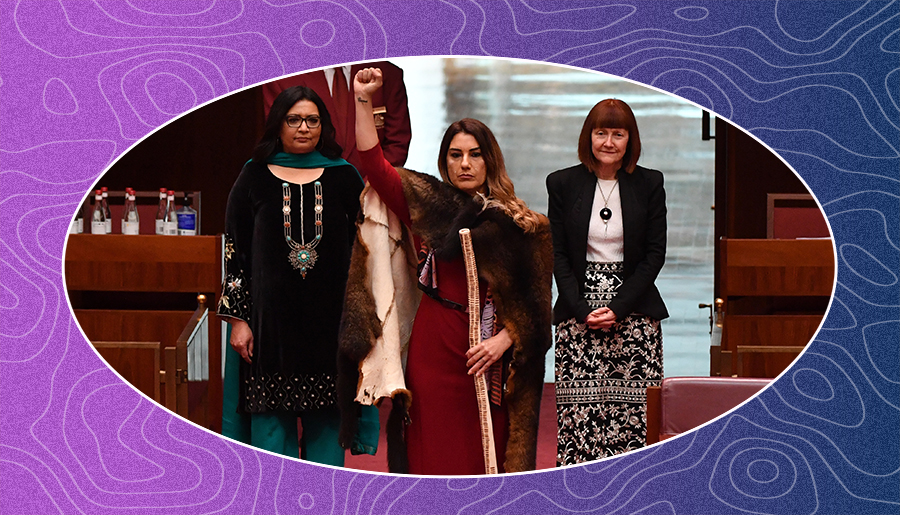At the beginning of this year, the Greens didn’t know if they’d be for or against a First Nations Voice to Parliament. They didn’t have a unified debate position, nor did they have a unified stance on a Voice referendum.
Moreover, some Greenies believed that establishing a new group of First Nations peoples to advise the government on First Nations issues would be a smart move. However, the likes of Lidia Thorpe, who was a member of the Greens at the time, wanted Australia and her party to go in another direction. Thorpe wanted, and still wants, a First Nations Treaty above almost all other policies.
A treaty would be a document that would allow Indigenous folks to run their own affairs without bureaucratic interference.
This divide was further complicated by the fact that the Greens wanted a united position on this issue before Parliament kicked off. Additionally, there was another wrinkle in play. A recent poll noted that 87% of the Greens’ voters are in favour of a First Nations Voice referendum.
So, with all of this in mind, the Greens headed to a two-day retreat to debate their differences. However, Thorpe didn’t attend this retreat, nor did she video in. And what happened next was a major, major blow for the Greens.
Thorpe Departs the Greens
On February 6, a proud DjabWurrung Gunnai Gunditjmara woman exited from the Greens party. That woman being Thorpe.
As Thorpe said, “This country has a strong grassroots black sovereign movement, full of staunch and committed warriors, and I want to represent that movement fully in this parliament. It has become clear to me that I can’t do that from within the Greens.”
“Now I will be able to speak freely on all issues from a sovereign perspective without being constrained by portfolios and agreed party positions. Greens MPs, members, and supporters have told me they want to support the Voice. This is at odds with the community of activists who are saying Treaty before Voice.”
However, Thorpe also emphasised that this announcement wasn’t her stating a firm ‘yes’ or ‘no’ vote for the Voice. Thorpe’s main Voice concern is that it would make First Nations peoples less autonomous and less in control of their destinies.
The Greens Commit to Voice
That very same day, the Greens announced that they would support establishing a Voice before establishing a Treaty. They also stated that they’re in favour of using a referendum to make this happen.
Adam Bandt, the leader of the Greens, stated, “We want the referendum to succeed, we want First Nations justice, and we want Truth and Treaty as well as Voice.”
“A strong First Nations body would be a further step towards true self-determination and justice.”
Bandt additionally said, “I don’t think a ‘no’ vote will get us closer to Treaty and Truth, but I respect that others in the First Nations community may have a different view on that.”
The Greens’ Internal Battle
On February 8, the media turmoil of Thorpe’s departure was all but over. However, the Greens’ issues weren’t done or dusted. This is because some key members of the Greens’ First Nations advisory group have released a statement that disparages the Voice.
This pushback came from Dr Tjanara Goreng Goreng and Dominic Wy Kanak, two co-conveners of said group.
“We do not believe the voice to parliament will solve the problems occurring in First Nations communities or in black-white relations in Australia,” said their statement.
“We do not feel it is necessary to ask the whole country, through a referendum, to approve the establishment of an advisory body that is subservient to the Australian parliament and gives us no rights of self-determination as outlined in the United Nations Declaration of the Rights of Indigenous People.”
It’s worth noting that before this statement was released, the Greens met with their First Nations advisory group. In this meeting, the Greens noted that the board would support the Voice.
Read more stories from The Latch and subscribe to our email newsletter.







